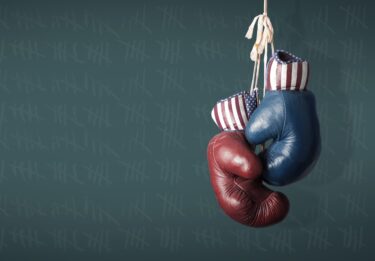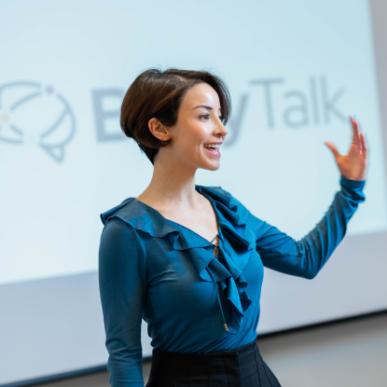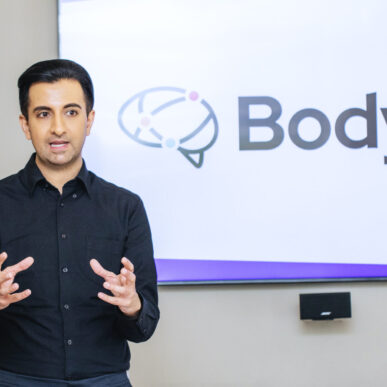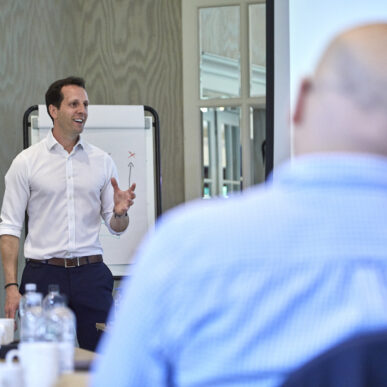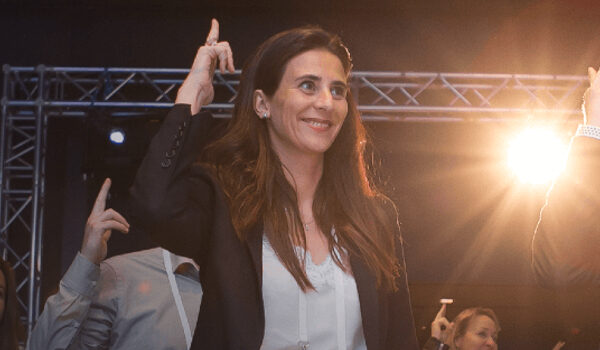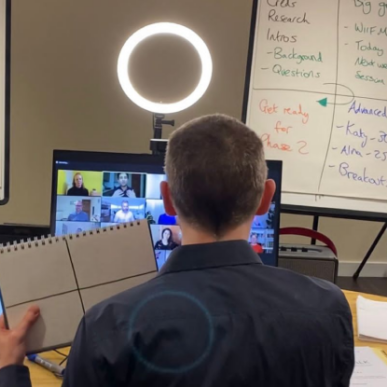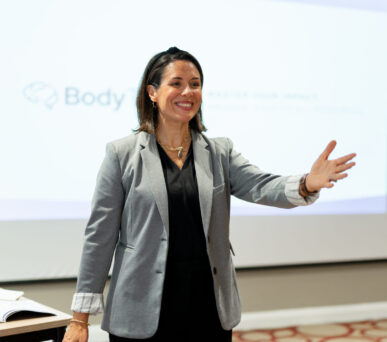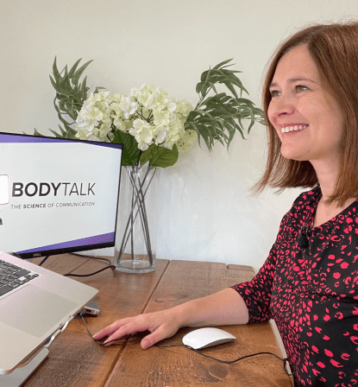“In order to engage an audience, that audience needs to have a reason to feel engaged.”
Who is the hero? The first presidential debate, 29th September 2020
“I never dreamt it would go off the tracks the way it did,” reflected Chris Wallace, the moderator of the first Presidential Debate between Donald Trump and Joe Biden.
The weeks and months preceding it had been characterised by personal attacks and unsubstantiated claims from both campaigns. As a result, it was always going to be a fractious encounter, but few thought it would turn into the unedifying spectacle it did. As Biden correctly observed just 17 minutes into the 90-minute debate, “This is so un-presidential.”
A great deal has already been said about the conduct of the two candidates during the debate – primarily Donald Trump’s incessant interruptions (73, according to BBC Americast) and Joe Biden’s outbursts when Trump got under his skin (“Will you shut up, man” and “this clown” being among them).
As striking as those things were, what stood out most was how the candidates addressed their audience: The American people—specifically those in swing states who are likely to decide the election.
I should point out here that I’m not commenting on either of the candidates’ policies. My observations are about how they delivered their messages.
HERO OR MENTOR?
One of the biggest traps that speakers fall into when creating their content is that they start by asking, “What is it that I want to say?” The problem with this approach is that the audience doesn’t really care what you want to say. They only care about what they need to hear.”
Let me put this into a storytelling context. In almost every story, a Hero faces a challenge. They then have to go on a journey to overcome it and find a better future.
Every story needs a Hero.
The common mistake that speakers make when delivering their message is to think of themselves as the Hero. In reality, the audience is the Hero. A message will land much more effectively if the audience feels a personal connection to it – if the challenges discussed are their own and the victory of overcoming those challenges is theirs.
As the speaker, you are the Mentor. Your role is to help the Hero overcome their challenges and guide them on their journey towards a better future.
IMPORTANCE OF LANGUAGE
The backdrop to the 2020 Presidential election is an America riven by the effects of Covid-19 and civil unrest in the wake of the George Floyd and Breonna Taylor killings. The story of the American people is one of pain and suffering, and they want it to stop.
Unsurprisingly how the two candidates responded to questions regarding these challenges was very different. Most noticeable was the language the two used.
Donald Trump’s responses were almost entirely focussed on the work he and his administration had done during his first term and always in a highly positive context. He repeated that he’d done a “phenomenal job” three times in quick succession in one answer.
It’s interesting to note that the most common pronouns he used were “I”, “me”, and “we.” When he did talk about those outside of his administration, “you”, “they”, and “them” largely referred to Biden, the Democrats and various other opponents.
Consequently, it felt like the American people were support players in his responses instead of being the lead role.
Trump was most certainly the Hero of this tale.
There was also a lack of detail about improving lives in America if he was re-elected. His focus was primarily on the successes in his first term.
WHAT’S IN IT FOR ME?
The most listened to radio station in the world is WiiFM – What’s In It For Me? If your audience understands how they will benefit from listening to you, they are much more likely to pay attention to what it is you have to say.
Biden, in contrast, talked much more about the experiences of the American people: their hardship, their suffering and the role his administration would play in helping them overcome those challenges. He did talk a lot about himself and his policies, but his rhetoric often included the pronouns “you”, “we”, and “us” as he positioned himself alongside voters. At times he also spoke directly into the camera, appealing to the audience at home – “you will determine the outcome of this election” – reminding them that it was they who had the power in this election.
Biden was the Mentor.
There were also clearer benefits when it came to what he would do, be it expanding Medicaid, raising taxes or tackling the causes of civil unrest.
I want to be clear that I’m not calling a winner here. Both Trump and Biden landed damaging blows, and both missed badly. Overall, it was a debate that was diminished by cheap shots from both men, many of which had little to do with the questions they should have been answering.
My thought is simply this: to engage an audience, that audience needs to have a reason to feel engaged. In a Presidential election where the audience has the power to grant or deny you victory with their vote, viewing them as a subplot in their own story is a dangerous game to play.
